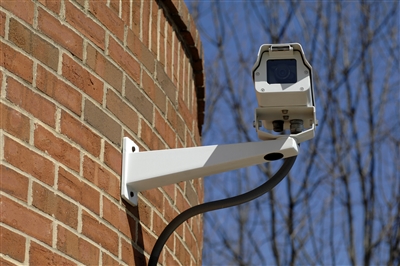Body Cameras at Schools

Teachers in two schools are trialing the use of body worn cameras, similar to those worn by the police. At least two schools in the UK are testing the new equipment, which features cameras that attach to the clothing. The devices are designed to be constantly filming, but will only actually record the data when the teacher presses a button.
It is hoped that the cameras will help combat `constant low level disruption` but they will also offer protection to the teachers themselves.
Some people have complained that the introduction of cameras into schools will violate privacy laws, but the Information Commissioner`s Office has explained that as long as the the filming is `legitimate, proportionate and necessary,` it would not be contravening the data protection act.
The use of cameras in schools is still a contentious issue - legally it is unprecedented, and some lawyers have said that, if challenged, teachers would have to specify a specific need to be wearing the recording devices.
Many public sector workers already use body worn cameras, most notably the police. In 2016 over 22,000 frontline Met officers were issued with Body Worn Video (BWV) equipment; and there are further plans to make the devices standard among the 32 boroughs in London.
Many NHS staff, especially those working in A&E, already wear video recording equipment, and their use amongst parking wardens and crossing-patrol officers is becoming more common.
The reception of body worn cameras in these sectors has been largely positive: not only do they purportedly help bring about speedier justice for victims, they also reassure members of the public, who know that the the behaviour of those in authority is also under observation.
Is there really the necessity for such levels of surveillance in schools though? Many would say that if cameras are needed in a classroom for the protection of teachers and pupils, then that classroom is an unsuitable learning environment in the first place. Efforts might be better spent focusing on the issues that lead to disruption, rather than preparing teachers to be equipped to record any disturbances.
Of course this might be a naive view: there is only so much teachers can do, especially in this litigious age, where schools are certainly limited in the authority they can exorcise. Many teachers have praised the introduction of body worn cameras, saying they will protect them from any false accusations of misconduct.
Mr Ellis, a principle lecturer in criminal justice at the University of Portsmouth, as said `Most schools now have some level of problems with low-level background disorder in classrooms and the teachers have become quite fed up with not being able to teach.`
Perhaps we should not be so quick to roll out our ever expanding surveillance net into the classroom though. The UK has the highest number of CCTV cameras in the world - possessing only 1% of the world`s population, it has a staggering 20% of the world`s CCTVs. Do residents of the UK feel safer with one CCTV for every fourteen members of its population? Have they actually helped reduce the level of crime? These are not easy questions to answer - and until we can maybe we should be a little more hesitant before we populate our classrooms with the ever watchful electronic eyes.
Ask any teacher what they would like most to help them do their job, and it is unlikely the first thing they will say is a camera attached to their clothing. What they will probably tell you is they would like smaller classes, and a reduction in administrative paperwork. Give them more time to actually teach, with more than just a few minutes to spend with each pupil in overpopulated classrooms, and maybe the amount of disturbances will decrease.

 Add a Comment
Add a Comment